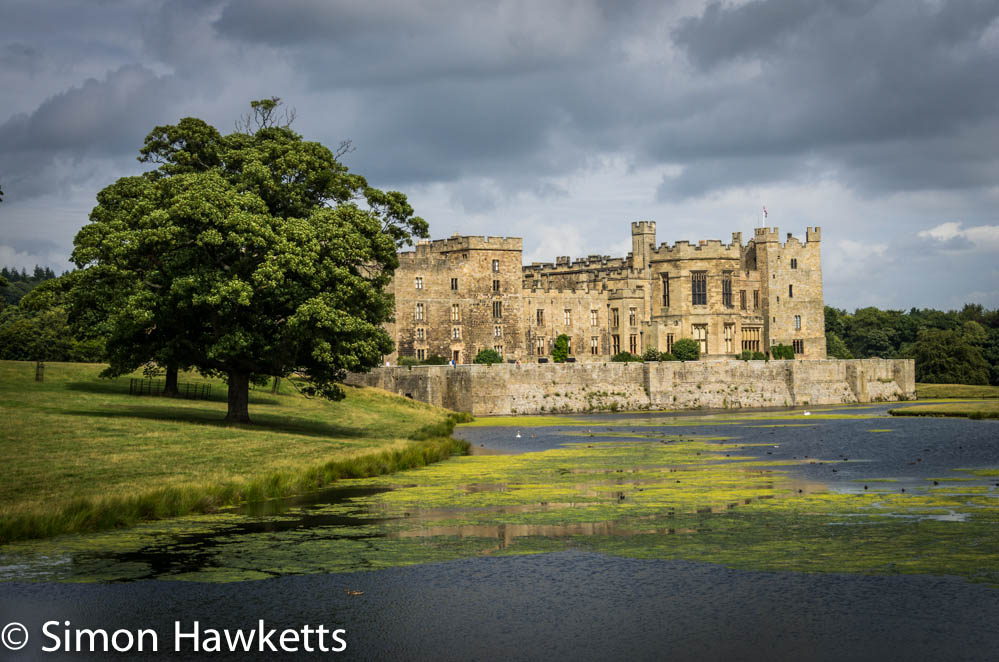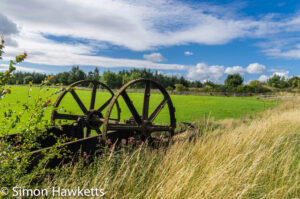How much should we post process ?
I’ve been taking photographs for many years. First with black and white film, then colour film and slides and now with a DSLR. Although processing was a part of the process with film and involved all sorts of techniques to improve the final image, I have always said to myself that I don’t do processing of digital images. I’ve always thought that I try to take the picture as I see it and don’t want to spend hours with photoshop trying to improve the image.
For many years that was true. I took the jpeg image produced by the camera I was using and published it ‘as it was’. Then, a few years ago I discovered that I would get better images if I used RAW images and converted them to jpeg myself. About two years ago I started using Lightroom to do the conversion to jpeg and I’ve recently upgraded to Lightroom 5.
I’ve been reading Martin Evenings Lightroom 4 book recently and been picking up some new techniques to adjust the brightness of a particular colour (used to darken the sky in a shot) and whilst I was using the before/after view it suddenly occurred to me that my original premise has gone out of the window. I now do quite a bit of post processing to improve pictures, and not only to get the picture produced to be a more accurate representation of the original scene.


For example this shot of Raby Castle has been through the following stages to get from the original (lightroom camera default) to the processed
- White balance adjustment
- Exposure correction
- Contrast adjust
- Shadow Correction
- Clarity boost
- Black Clipping adjustment
- Highlight correction
- Vibrance
- Lens Correction
- Remove chromatic Aberration
- Post crop vignette added
Now I think the processed shot is better than the original, and I don’t think I’ve gone too far but I’d be interested in people’s views ? Note that both of these images are reduced to only 1000 px on the longest side so not full resolution.
I’m coming to the conclusion that I can sort of justify a variation of my original claim – I don’t do post-processing to ridiculous extremes i.e. I don’t produce pictures with the sky the wrong colour etc but just try to produce pleasing versions of what the camera captures. Come to think of it, that’s probably what photographers have been trying to do for years.


My view is that all digital photographs need some processing. Lightroom is a great program, I use other tools as well. I have written about this issue on my blog and will be again shortly. As to the photos above I very much like the processed version over the original.
Thanks for the comment – I look forward to reading both your existing posts and the new ones.
My view is that people are so used to seeing processed shots today that it doesn’t matter. I post process and most times overdo it. However most of my work is black and white.
Actually, having written that post I read an article last night that pointed out that every digital photo is ‘post processed’ since the act of turning a raw image to a jpeg must include a certain amount of sharpening, colour correction etc. If we don’t do it we rely on software to do it
I had held that ‘no post-processing’ approach for a long time… till I realised that every commercially published image I saw around me had been through some ‘post-processing’ or the other. And as you have rightly said, post-processing has always been there, even in film times.
As long as you are not a forensic photographer, it shouldn’t really matter. You are the creator of that image…… its your prerogative to determine how you present them.
This is of course not to undermine the importance of getting things right in the camera in the first place… or like once I read somewhere that you have to decide whether you are photographer first or a retoucher 🙂
Yes good points – thanks
Like you, I always felt that I didn’t want to do too much post-processing. I’d maybe adjust white balance, contrast, turn the color up a little, and sharpen the image, but that was about it. I feel that I want my photos to reflect the image “as is.” I think all digital photos need a little help — even back in the days of film, photos were post-processed a bit … how long the negative was in this or that fluid, etc.
I have, however, found that sometimes it is fun to play with an image, and do more spot-processing, rather than an equal, across the board adjustment. And, sometimes, it’s fun to play with the filters — and, that you can get some very interesting results.
Personally, for the website where I sell my work, it’s mostly minimally processed. But, for my photo blog, I’ve posted a few more “playing around” types of photos, just for the heck of it.
I don’t know that I’ll every be one of those people who combines photos, to created something entirely new … I can appreciate the work that goes into those types of photos, but, for me and my photography, I want my images to represent things as they exist.
Thanks for your thoughts John – appreciated
Love the after photo – stunning without looking overdone. Really interesting to see your stages of processing. I’m just getting started with Lightroom after refusing to edit photos for the longest time. 🙂
Thanks for your comments. The only advice I would give is to make sure you always shoot RAW so you can get the most out of any post processing you do and have fun !
I haven’t switched my camera to RAW yet, I know I need to do it!
You will find much better results when you do because you have the full range of data the camera shot rather than starting with an ‘already processed’ version
I noticed that as time goes by I’m starting to pull back a little on saturation, sharpness and clarity (LR5).So maybe it’s a function of time plus viewing photographer’s whose work I like.
Actually thinking about it I suspect I’ve probably started to push those up a bit
There’s no such thing as an un-processed image. Film photographers choose different kinds of film just for certain effects. Every adjustment made in camera, from the ISO to the depth of field, in any camera, film or digital, will change the grain, and that can be used to create a certain effect. So, have at it.
Yes you are right – that’s the conclusion I’ve come to in the last few weeks
[…] How much should we post process ? (simonhawketts.wordpress.com) […]
[…] a recent post someone who added a comment remarked that they had not yet set their camera to store RAW images and […]
[…] How much should we post process ? (simonhawketts.wordpress.com) […]
In my opinion, photography is a subjective process and already has a lot to do with mood. Everyone sees the same thing differently. That is why – I think – a reworking of a photo completely reasonable action. Even the choice of the place, of the lens, the angle, of the crop and the relation of time/aperture are creative decisions. If the sensor of the camera sees something different than you’ve felt it, it’s obvious, to adapt it. You are the artist and decide about your work. This should be independent of what others do and how much. It’s your picture and your choice. 🙂
[…] How much should we post process ? (simonhawketts.wordpress.com) […]
My attitude to post processing is that some needs to be done. I will usually check exposure, white balance, brightness, contrast and sharpness and those that need improving get improved. The rest get left alone.
My attitude here is much the same as my attitude to cropping – in camera is best but if a picture needs attention, I will not be precious about it.
[…] How much should we post process ? (simonhawketts.wordpress.com) […]
[…] did a fair amount of post-processing on these pictures but I think the finished results are quite natural looking. Click any of the […]